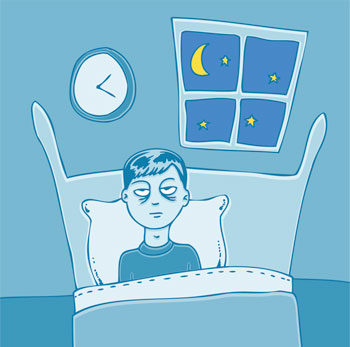Sleep disorders and sleep problems can be big problems for many people. Sleep is crucial to our health, well-being, and cognitive function. When we don’t get enough sleep (or trouble sleeping) it can harm the quality of life in so many ways! In this post, we will talk about what sleep disorders are, their signs and symptoms, how they affect mental health as well as physical health. We will also discuss self-help strategies and explore other treatment options that you can use to help yourself if you have a sleep disorder or sleeping problem.
Contents
- 1 What Is A Sleep Disorder Or Sleep Problem?
- 1.1 Difference Between Sleep Disorder And Sleep Problem
- 1.2 Types Of Common Sleep Problems And Sleep Disorders
- 1.3 Sleep Disorders And Sleep Problems In Children
- 1.4 Causes Of Sleep Disorders And Sleep Problems
- 1.5 Symptoms Of Sleep Disorders And Sleep Problems
- 1.6 Ill Effects Of Sleep Disorders And Sleep Problems
- 2 How To Track Your Symptoms
- 3 How To Help Yourself With Sleep Disorders?
- 4 When To Call A Doctor
- 5 Conclusion
What Is A Sleep Disorder Or Sleep Problem?
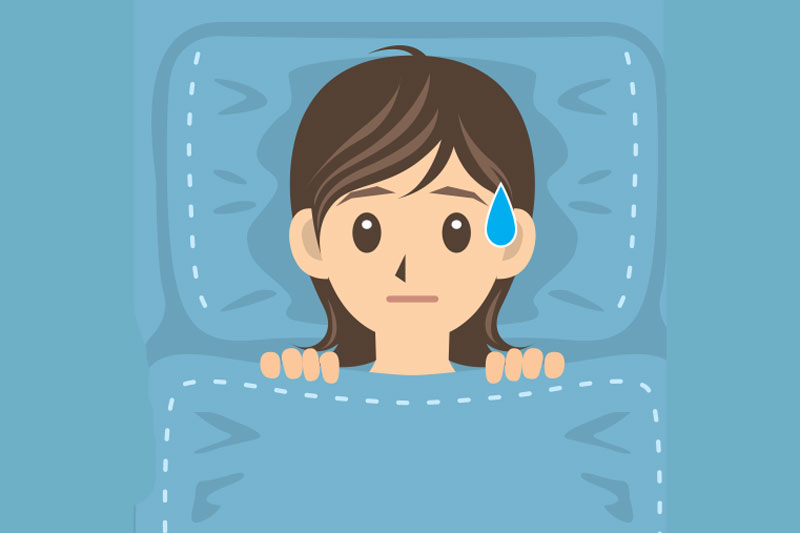
Sleep disorders are a group of conditions that affect the ability to sleep well. Sleep problems are a group of conditions that make it difficult to fall asleep, stay asleep, or get restful sleep. Some people may have trouble sleeping due to stress, anxiety, or other emotional problems. Others may have physical problems such as pain, restless legs syndrome, or acid reflux.
NOTE: You may have a sleep disorder that has no symptoms, making it difficult to identify and treat.
Difference Between Sleep Disorder And Sleep Problem

- Sleep disorders are a group of conditions that affect the ability to sleep well.
- Sleep problems are a group of conditions that make it difficult to fall asleep, stay asleep, or get restful sleep.
Types Of Common Sleep Problems And Sleep Disorders
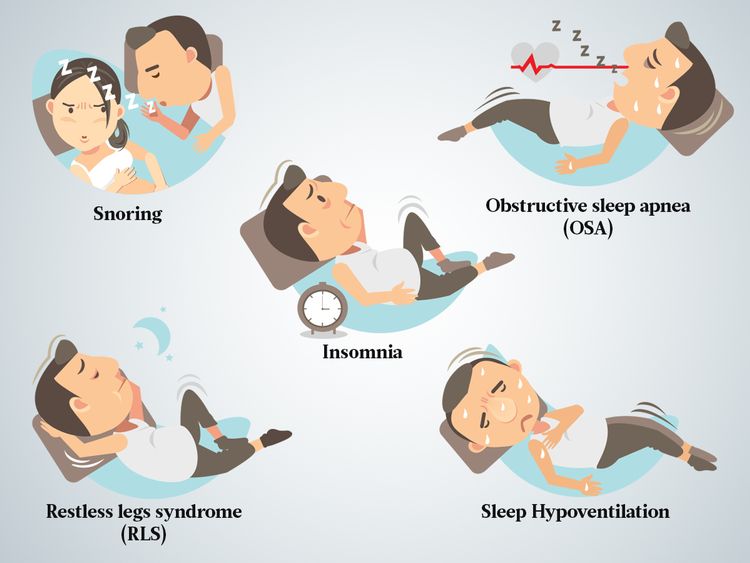
There are a variety of types of sleep problems and disorders that can impact people’s ability to get a good night’s sleep. Some of the most common include:
Insomnia
This is the inability to fall or stay asleep, which can lead to fatigue and daytime drowsiness.
Snoring
This is a common problem that can be caused by many things, such as nasal congestion, sleeping on your back, or being overweight.
Sleep Apnea
This is a disorder that causes people to stop breathing multiple times during the night, which can result in drowsiness and problems with attention or memory.
Restless Legs Syndrome (RLS)
This is a condition that causes an uncomfortable tingling or crawling sensation in the legs, which can make it difficult to fall asleep.
Periodic Limb Movement Disorder (PLMD)
This is a disorder that causes people to move their limbs involuntarily during sleep, which can lead to disrupted sleep.
Narcolepsy
This is a rare and serious condition that causes people to fall asleep suddenly and without warning.
Excessive Daytime Sleepiness (EDS)
This is a condition characterized by excessive sleepiness during the day, regardless of how much sleep someone gets at night.
Sleep Disorders And Sleep Problems In Children
Children can also experience sleep problems and disorders. Some common issues include:
- Bedwetting,
- Nightmares,
- Sleepwalking, and
- Teeth grinding (bruxism)
Causes Of Sleep Disorders And Sleep Problems
There are many potential causes of sleep disorders and sleep problems. Some common causes include:
- Lack of exercise
- Poor diet
- Stress or anxiety
- Depression
- Side effects of medication
- Smoking or alcohol use
- Obesity
- Shift work
Symptoms Of Sleep Disorders And Sleep Problems
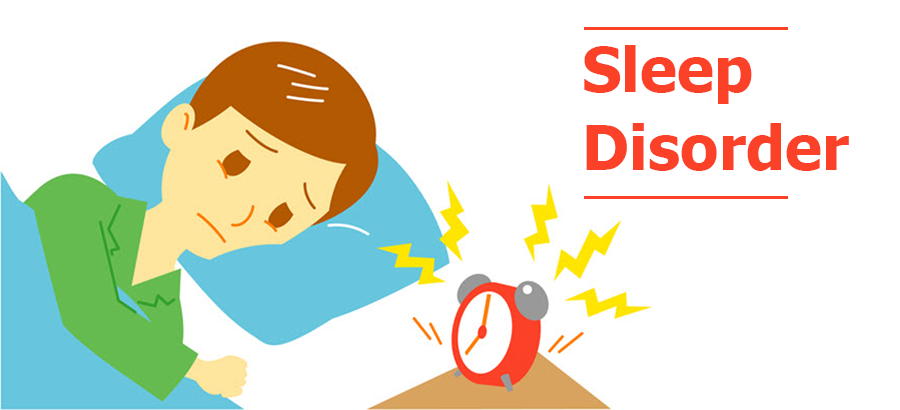
The symptoms of sleep disorders and sleep problems vary from person to person. Listed below are some common signs you may have a problem with your sleep:
- Difficulty falling asleep or staying asleep every night, even when the reason for being awake seems resolved. This often results in fatigue the next day.
- Sleepiness during the daytime, even when you have had enough sleep.
- Insomnia or difficulty sleeping more than three nights a week.
- Frequent awakenings throughout the night that leave you feeling exhausted the next day.
- Difficulty concentrating, remembering things, or making decisions during the day.
- Irritability, mood swings, or depression.
- Feeling restless and irritable when you try to sleep.
- Headaches, a sore throat, or problems with breathing during sleep.
- Experiencing nightmares or night terrors.
Ill Effects Of Sleep Disorders And Sleep Problems
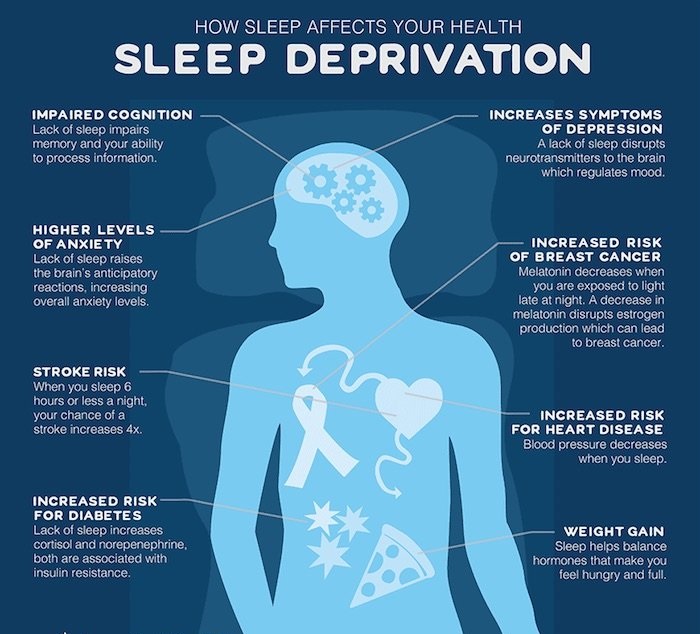
On Mental Health
People with sleep disorders and sleep problems are at an increased risk for developing mental health conditions like:
- Depression,
- Anxiety, and
- Bipolar disorder
NOTE: These conditions can be made worse by lack of sleep, and can also lead to further disruptions in sleep.
On Physical Health
Sleep disorders and sleep problems often lead to physical health conditions like:
- Obesity,
- Hypertension (high blood pressure),
- Type II diabetes,
- Heart disease and
- Stroke
How To Track Your Symptoms
If you are experiencing any of the symptoms listed above, it is important to track them so that you can bring them up with your doctor.
To track your symptoms, it is best to keep a sleep diary for at least two weeks. The following questions may help you get started:
- Date and time of day when you went to bed;
- Amount of time spent in bed before falling asleep;
- Whether or not you woke up during the night;
- Length of each sleep interruption;
- The time you woke up in the morning
How To Help Yourself With Sleep Disorders?
If you are experiencing sleep issues, there are things that you can do to help improve your quality of life.
Practical Tips

Several things can be done at home to improve your sleep habits and help with any problems you may have sleeping, including:
- Make sure your bedroom is quiet, dark, and cool (between 65°F – 70 °F). This will help you fall asleep and stay asleep.
- Establish a regular sleep schedule by going to bed and waking up around the same time every day. This will help your body get into a rhythm.
- Avoid caffeine, alcohol, nicotine, and eating heavy meals close to bedtime. All of these can disrupt your sleep.
- Exercising regularly, but not within a few hours of when you plan to go to bed.
- Creating a relaxing bedtime routine including reading or listening to calming music.
- Treating any underlying medical conditions that may be causing your sleep problems.
Therapies
If self-help measures do not improve your sleep, your doctor may recommend therapies such as:
- Cognitive-behavioral therapy (CBT),
- Behavioral intervention for insomnia (BII),
- Positive airway pressure therapy,
- Adaptive servo-ventilation therapy, or
- Mandibular advancement device
Treatment Options
There are a variety of treatment options available for sleep disorders and problems, which may include:
Medications
There are a variety of medications that can be prescribed to help with sleep disorders and problems, which include:
- Benzodiazepines,
- Non-benzodiazepine hypnotics,
- Antidepressants, and
- Melatonin receptor agonists
NOTE: Do not administer these medicines without prescription by a medical professional.
Side Effects Of Medications
All medications have the potential to cause side effects, which may include:
- Drowsiness,
- Headache,
- Nausea, and/or vomiting
Surgeries
There are several surgeries that can be performed to help with sleep disorders and problems, which include:
- Uvulopalatopharyngoplasty (UPPP),
- Tonsillectomy,
- Adenoidectomy,
- Maxillomandibular advancement surgery, or
- Hyoid suspension
Behavioral Therapies
Behavioral therapies are another treatment option for sleep disorders and problems, which include:
- Relaxation therapy,
- Cognitive-behavioral therapy (CBT), or
- Biofeedback training
These types of treatments help patients learn to reduce stress and anxiety that can interfere with their ability to fall asleep.
Complementary and Alternative Medicine (CAM)
There are several complementary and alternative therapies that can be used to help with sleep disorders and problems, which include:
- Acupuncture,
- Herbal remedies,
- Hypnosis, or
- Massage
While there is limited evidence to support the use of CAM in the treatment of sleep disorders and problems, some patients find that it helps them relax.
When To Call A Doctor
If you are having trouble sleeping every night and it is impacting your daily life, it is important to see a doctor. Similarly, if you are experiencing any of the other symptoms listed above, it is time to seek medical help.
Conclusion
Sleep disorders and sleep problems can have a significant impact on your quality of life. It is important to be aware of the signs and symptoms and track them so that you can get the help you need. There are many treatment options available to help people on their path toward better sleep.
For more information, please contact MantraCare. Sleep is an essential part of our daily routine and it plays a significant role in maintaining a healthy body and mind. If you have any queries regarding Online Insomnia Counseling experienced therapists at MantraCare can help: Book a trial therapy session
